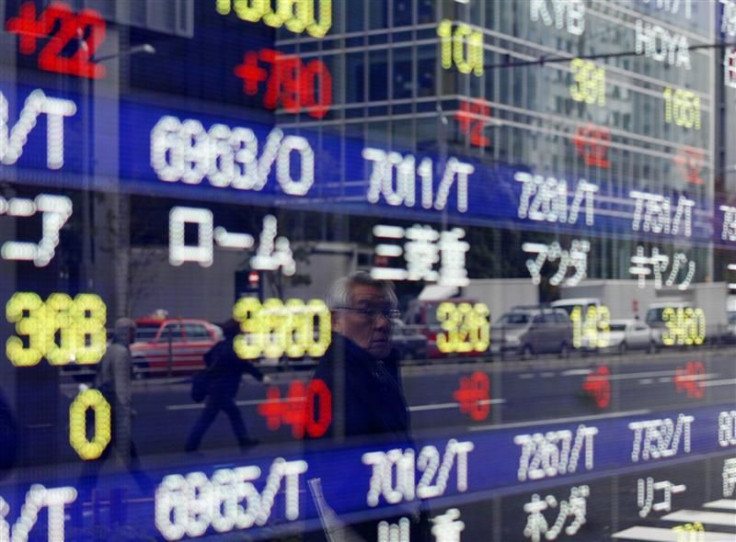Asian Stocks Fall On Global Economic Growth Worries

Most Asian markets fell Thursday as investor worries about worsening global economic downturn strengthened following unanticipated interest rate cut in South Korea.
Japan's Nikkei Stock Average fell 0.97 percent or 85.62 points to 8765.38. Among major losers were Sharp Corp (5.34 percent), NEC Corp (1.87 percent) and Sony Corp (1.66 percent).
South Korea’s KOSPI Composite Index declined 0.71 percent or 13 points to 1813.39. Shares of Samsung Electronics Co Ltd fell 0.54 percent and shares of Hyundai Motor Co declined 2 percent.
India's BSE Sensex fell 1.03 percent or 180.21 points to 17308.93. Major losers were Infosys (3.30 percent), ICICI Bank (1.05 percent) and Sesa Goa (0.63 percent). Infosys, a major IT solutions provider, reported consolidated net profit of 22.89 billion rupees ($413 million) in the quarter ending June, down from 23.16 billion rupees in the previous quarter.
The Chinese Shanghai Composite fell 0.71 percent or 15.44 points to 2159.95. Hong Kong's Hang Seng declined 1.70 percent or 329.73 points to 19090.14. Major losers were Sands China Ltd (3.46 percent) and China Construction Bank Corp (2.84 percent).
The Bank of Korea (BoK) cut its policy rate by 25 basis points to 3 percent Thursday, after leaving it on hold for twelve consecutive meetings in a row. It was expected that rates would be left on hold again, owing to lingering concerns about inflation within the central bank.
The U.S. Federal Open Market Committee (FOMC) released Wednesday the minutes of its June 19-20 meeting. The minutes offered insight into the FOMC's stance on monetary policy.
“A few members expressed the view that further policy stimulus likely would be necessary to promote satisfactory growth in employment and to ensure that the inflation rate would be at the Committee’s goal,” the FOMC said. It added that additional policy action could be warranted if the economic recovery were to lose momentum.
Investors are concerned to note that more monetary easing measures from the Fed will become a reality only if the economic recovery loses even more momentum or a more severe flare up in the euro zone crisis raises the already elevated downside risks.
© Copyright IBTimes 2024. All rights reserved.





















